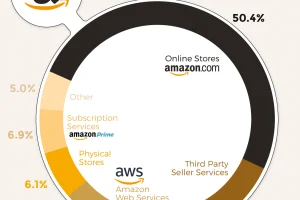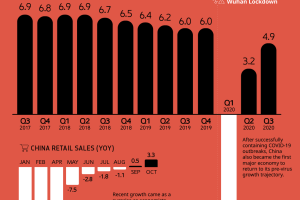The Briefing
- Values-driven investing has become popular across a variety of age groups
- However, different age groups value different issues over others
- Young investors (age 25-39) are most concerned about climate change and plastic in the ocean
- In contrast, investors aged 55+ care more about data fraud and gun control
What Issues Do Values-Driven Investors Care About?
Contrary to popular belief, environmental, social, and governance (ESG) investing isn’t just for the younger generation.
In fact, more than 80% of investors aged 40+ are interested in aligning their investment portfolios with their personal values, which is only around 10 percentage points less than the younger demographic (aged 25-39).
However, while overall intent to invest in the greater good is consistent across the board, the top concerns among investors vary, depending on age.
Here’s a look at the top issues that investors want addressed in their portfolios, by age group:
| Age Group | |||
|---|---|---|---|
| Issues Investors Want Included in Their Portfolio | 25-39 years old | 40-54 years old | 55+ years old |
| Global warming/ climate change | 34% | 34% | 27% |
| Impact of plastic on the oceans | 21% | 30% | 26% |
| Sustainability | 24% | 23% | 17% |
| Data fraud or theft | 14% | 20% | 29% |
| Gun control | 13% | 20% | 22% |
Young Investors Care More About Long-Term Issues
As the table above shows, the top concern among investors aged 25-39 is climate change, followed by sustainability in general.
This makes sense, considering that younger investors will most likely be around to deal with the consequences of long-term issues like climate change and plastic pollution.
In contrast, investors with a shorter time horizon to retirement (aged 55+) are more concerned with immediate threats like gun control and data fraud.
How To Execute on Values-Driven Investments
It’s clear that investors of all ages are interested in values-driven investing—but how can investors take action to build a portfolio that reflects their beliefs?
There are two approaches to building a sustainable investment portfolio:
- Exclusionary investing
Also known as negative screening, or divesting. This is when investors screen out industries that go against their values, such as tobacco, gambling, or fossil fuels. - Inclusionary investing
Also knowns as positive screening. This is when investors formally consider ESG factors in their research process under the assumption that companies with strong sustainability practices can outperform their industry peers over time.
While exclusionary investing is the more common approach, research on the effectiveness of inclusionary investing has been overwhelmingly positive.
» For a more in-depth look on the top of values driven investing, read our full article The Rise of the Values-Driven Investor
Where does this data come from?
Source: New York Life, 2019.
Notes: Data was derived from a 2019 study conducted by New York Life Investments,
in partnership with RTi Research.





